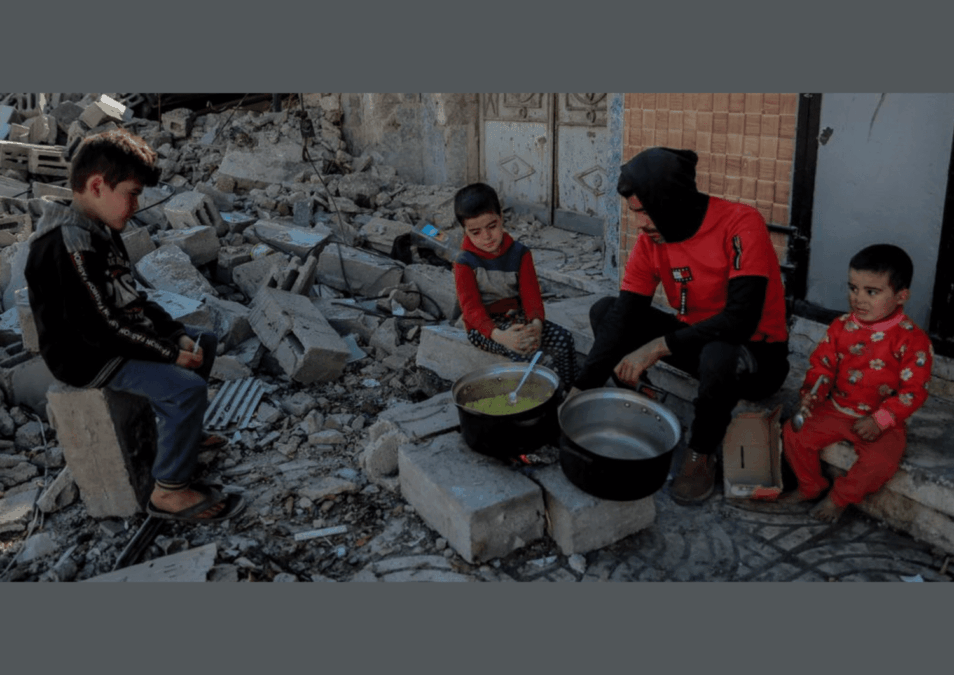The largest remaining hospital in southern Gaza is “barely functional”, the UN World Health Organization (WHO) warned on Friday amid reports of intense attacks by Israeli forces.
There have been reports of damage to Nasser Hospital’s orthopedic unit, reducing its ability to provide urgent medical care, WHO spokesperson Tarik Jašarević told correspondents at a press briefing in Geneva.
“More degradation to the hospital means more lives being lost,” he said.
According to the UN agency, of the 36 hospitals in the war-ravaged enclave, only 11 are functioning. There are also reports that several patients have died during the Israeli operation.
The Israeli military has alleged that Hamas was holding hostages or withholding the bodies of Israelis within the Nasser compound, situated in Khan Younis.
Places of healing, not burial
The hospital has been providing lifesaving services to the most critically ill and has been a refuge to countless civilians displaced from elsewhere in the Gaza Strip.
Mr. Jašarević added that WHO was trying to gain urgent access to the complex.
“We really need to get there to bring fuel so [the] hospital can continue to function and those patients who are still there can continue to receive medical care,” he said, also stressing the need to assess the conditions of patients and for their safe referral to other facilities.
“We have been saying all this time…that patients, health workers and civilians who are seeking refuge in hospitals deserve safety and not a burial in those places of healing,” he added.
Intense bombardment continues
Meanwhile, intense Israeli bombardment from air, land and sea continues to be reported across much of the Gaza Strip, resulting in further civilian casualties, displacement and infrastructure damage, the UN Office for the Coordination of Humanitarian Affairs (OCHA) said.
“Widespread ground operations and heavy fighting between Israeli forces and Palestinian armed groups also continue to be reported, especially in the centre of Khan Younis and east of Deir Al-Balah,” OCHA noted in a flash update issued on Friday.
Between the afternoon of 15 February and 11am on 16 February (local times), according to the Ministry of Health in Gaza, 112 Palestinians were killed, and 157 Palestinians were injured, and since 7 October, at least 28,775 Palestinians were killed in Gaza and a further 68,552 reported injured.
Tiny sliver of land
OCHA also relayed reports that intensified airstrikes on Rafah and statements by Israeli officials of a ground operation have led to the movement of people sheltering there towards the town of Deir Al-Balah in central Gaza.
Over half of Gaza’s population are crammed into Rafah, which is located at the southern end of the Strip, in an area that represents just one fifth of the entire enclave.
‘Humanity must prevail’
The situation is particularly dire for pregnant women, new mothers and newborns.
The UN Population Fund (UNFPA) warned that the Al-Helal Al-Emirati Maternity Hospital in Rafah is “overwhelmed and struggling” to provide adequate care.
If the bombs don’t kill
– UNFPA
pregnant women, if
disease, hunger
dehydration and
don’t catch up with
them, simply giving
birth could
“Put simply, if the bombs don’t kill pregnant women, if disease, hunger and dehydration don’t catch up with them, simply giving birth could,” the UN agency, which works for safe motherhood, said.
Further attacks, UNFPA warned, would mark another devastating turn in the war, and thousands more could die in the violence or through lack of access to food, water and critical lifesaving services.
Humanity must prevail, it added, reiterating the call for an immediate humanitarian ceasefire in Gaza and the safe and immediate release of all hostages.
‘Clock is ticking fast’
The UN independent committee monitoring the implementation of the Convention on the Elimination of All Forms of Discrimination against Women echoed that call.
It urged Israel to allow the provision of medicines and medical personnel and humanitarian assistance, including the special needs of women and girls such as sexual and reproductive health services, and sanitary and hygiene products.
“The clock is ticking fast towards famine and an outbreak of epidemics. The lives and health, physical and mental, of the women and girls of Gaza are severely compromised,” said the committee, which is composed of experts independent of any government and the United Nations.
Donate to the humanitarian response in Gaza







